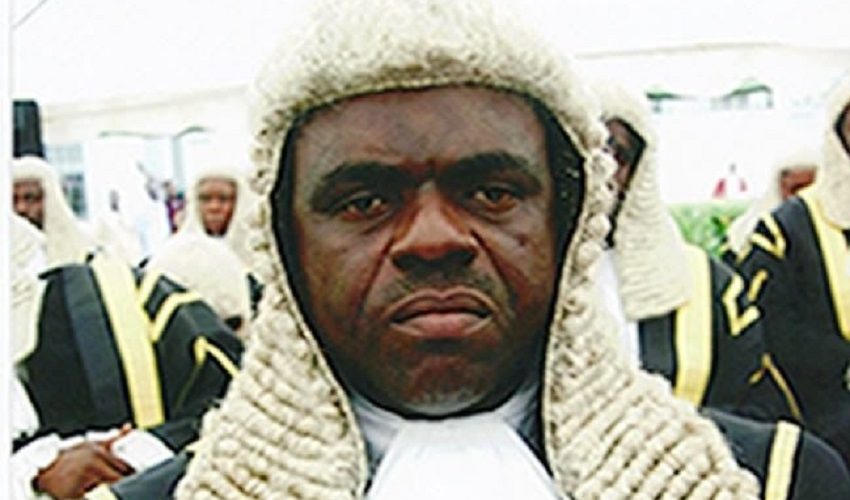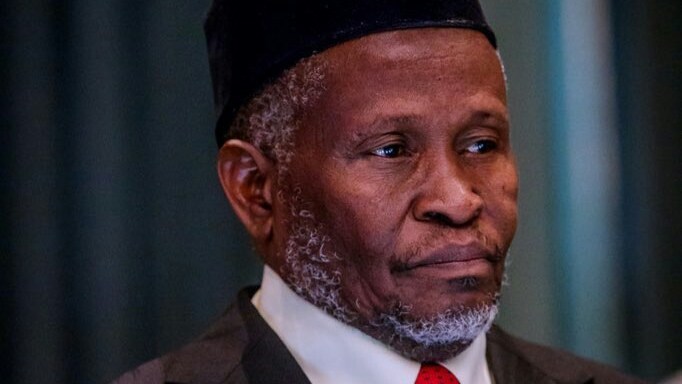By IGE ASEMUDARA
Prominent lawyer and Managing Partner of Royal Practice (Legal Group), Ige Asemudara argues that there is no ambiguity as to the path the Supreme Court should tread in the Zamfara State elections saga
There is no gainsaying the fact that non-compliance with rules and disobedience to law and order has been the bane of the Nigerian state; her institutions are bogged down by it and her machineries are almost grinding to a halt. Thus, government agencies and departments are either unproductive, under-productive or counter-productive. From university admissions to recruitment into government services, and the administration of public services of the federation and its various constituent states, standard procedures are hardly ever followed. This general affliction of the Nigerian state is replicated in virtually all the facets of public life including electoral matters. Nigeria stinks as impunity reigns! In Nigeria, the law merely stares as its assailers rapes and tortures her.
In electoral matters, Nigeria has been greeted by a spate of breaches of the rule of law and standard electoral practices making her a laughing stock in the international community. Failure to play by the rules has been a serious challenge for the various participants. It is unfortunate that many powerful individual aspirants or candidates and their political parties are involved in the deliberate and arrogant assault on the electoral laws. The involvement of political parties in these breaches manifests during inter-parties general elections as well as intra-party primaries. In law, the internal democracies of parties are as important to the process as the general elections and the Electoral Act, 2010 does not pretend about this. Due to the bad practices of the past years and the criticisms leveled against the Independent National Electoral Commission (INEC), the electoral umpire decided to rise up and ensure compliance with the law. The result is the Rivers and Zamfara debacle.
Whilst Rivers has been laid to rest vide the Supreme Court decision of 11th February, 2019, Zamfara appears to still pretend that there is a misty cloud of uncertainty as the two All Progressives Congress (APC) factions continue in legal warfare. The other participating political parties have also continued to embark on series of journeys targeted at resolving the log jam in their favour. In all of these, where does the law stand in Zamfara ? What must INEC do in the rare circumstances of the issue and in view of the law particularly the decision of the Court of Appeal (Sokoto division) graciously rolled down by my Lords, Tom Shaibu Yakubu, Tijjani Abubakar and Jamilu Yammama Tukur JJJCA on the 25th day of March, 2019?
In the prelude to the 2019 general election, APC had failed, neglected or refused to conduct a primary election for the aspirants to the governorship, National Assembly and State House of Assembly positions in Zamfara state before the lapse of time as provided by law. So, INEC communicated its intention not to include any candidate of the APC for these positions in the election until the party rushed to the Zamfara State High Court to secure a judgment that compelled INEC to recognise and include the candidates of the party submitted by the state chairman of the party. It was under this circumstance that the parties went into the general election on 9th of March, 2019. Whilst this went on, an appeal was pending against the judgment of Shinkafi J. which mandated INEC to recognize and include the names of the candidates of the APC on the ballot papers. Eventually, INEC announced the results of the March, 2019 governorship election and declared Alhaji Mukhtar Shehu of the APC as the winner of the election scoring 534, 541 votes to defeat Dr. Bello Muhammad Mutawalle of the People’s Democratic Party (PDP) who polled 189, 452 votes. Thereafter, the Court of Appeal concluded the hearing of the appeal lodged by Senator Kabiru Marafa and others and gave a judgment setting aside the decision of the High Court thereby nullifying and invalidating the APC primaries purportedly conducted on the 3rd and 7th day of October, 2018 in Zamfara state. This made INEC to immediately withhold the issuance of certificate of returns to the APC members in Zamfara state. This seems to have created a misty atmosphere in Zamfara which ought not to be as the law is clear enough on an issue such as this.
According to Lon Fuller, Law is the enterprise of subjecting human conduct to the governance of rules. In his Morality of Law, Fuller identified eight principles of legality which are generally accepted by legal scholars as capturing the essence of the rule of law. Without bogging down the reader with the details of Fuller’s proposition, it suffices to say that the provisions of the Electoral Act, 2010, the Constitution of the Federal Republic of Nigeria 1999 (as amended), the actions and conduct of INEC as the administering authorities of the electoral laws as well as the decision of the Court of Appeal on the 25th of March, 2019 are all within the enduring parameters of legality envisaged by Fuller. In simple terms, every participant in an election is not only expected to comply with the rules but he is bound by the clear rules and laws applicable to the said election for there is no game without a rule.
There has been a raging debate on what INEC ought to do under the circumstance. Like the preponderance of opinion, the Court of Appeal agreed and held that APC failed to comply with the provisions of Sections 31(1) and 87(1&2) of the Electoral Act, 2010. In reaching its decision the Honourable Court of Appeal quoted extensively from the Supreme Court’s decision in LAU V. PDP (2007) LPELR – 42800 (SC) @ pp 24-26 thus: “This is a hard and very bitter lesson for political parties to learn, they may have chosen candidates or eminent personalities they want to present as candidates to INEC, but they have to play by the rules, the chosen candidates must comply with the requirements of the law; they must abide by the provisions of the electoral Act, which creates a level playing field for all aspirants, who seek to contest elections. So, the political parties and their candidates must obey the Rules”. Now, it is without doubt that section 87(9) of the Electoral Act, 2010 provides that “where a political party fails to comply with the provisions of this Act in the conduct of its primaries, its candidate for election shall not be included in the election for the particular position in issue”. In the Zamfara situation, the candidates have been included in the election based on a court order which has now been reversed. The reversal means that the inclusion of APC candidates in the election was not just wrong but void.
It is humbly submitted that the refusal by INEC to issue the APC candidates certificates of return for the elections of 9th March, 2019 is in tandem with law. This is because in law, one cannot place something on nothing and expect it to stand. Lord Denning said that much in U.A.C. V. Macfoy (1962) A.C. 153 when he held that “If an act is void, then it is in law a nullity…. It is automatically null and void without much ado, though it is sometimes convenient to have the court declare it to be so. And every proceeding which is founded on it is also bad and incurably bad”. It is safe for INEC to hold on to the certificate until any appeal lodged at the Supreme Court is determined.
However, at the moment seeing through the eyes of the law in the spectacle of the Court of Appeal judgment of 25th March, 2019, the candidates of the APC never participated in the election and have no rights to take any benefit of it. INEC must however, bear in mind that like nature, the law abhors vacuum and governance must go on despite these electoral hurdles. In case there is no judgment from the Supreme Court before the 29th May, 2019, it is the candidates of the party that polled the second highest votes in constituencies and districts where APC came first, which should be handed the certificates of return and sworn-in. For instance, in the governorship position, Dr. Bello Muhammad Mutawalle of the PDP who came first among the lawful candidates in the election should be the person to be handed the certificate of return and sworn-in as the Executive Governor of Zamfara State the victory of the purported candidate of the APC over him being merely pyrrhic and false.
Finally, while it is hoped that politicians and political parties have learnt their lessons in all of these situations, it is important to state that until and unless an appeal is lodged at the Supreme Court and a verdict returned upturning the extant Court of Appeal judgment, APC and her members have no right to covertly or overtly obstruct INEC from performing its duties of issuing a certificate of return to the candidates of other political parties that have polled the highest number of votes in the eyes of the law. INEC being one of the respondents that lost at the appeal court must swiftly perform its statutory duty as an unbiased umpire. I am in agreement with Jerome Frank that a legal right is a law-suit won, and a legal duty is a law-suit lost.
Ige Asemudara Esq. a Lagos-based Legal Practitioner is the Managing Partner of Royal Practice (Legal Group), Lekki, Lagos.
Send your Press Release, Events, News Tips, Opinions or Informed Commentary to citylawyermag@gmail.com
Follow us on facebook at City-Lawyer-Magazine
Copyright 2018 CITY LAWYER. All materials available on this Website are protected by copyright, trade mark and other proprietary and intellectual property laws. You may not use any of our intellectual property rights without our express written consent or attribution to www.citylawyermag.com. However, you are permitted to print or save to your individual PC, tablet or storage extracts from this Website for your own personal non-commercial use.

